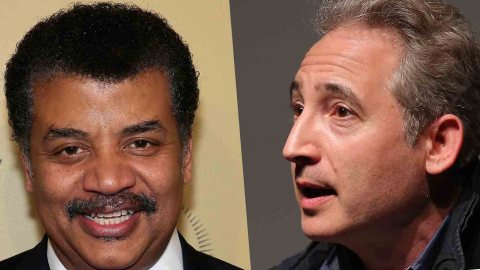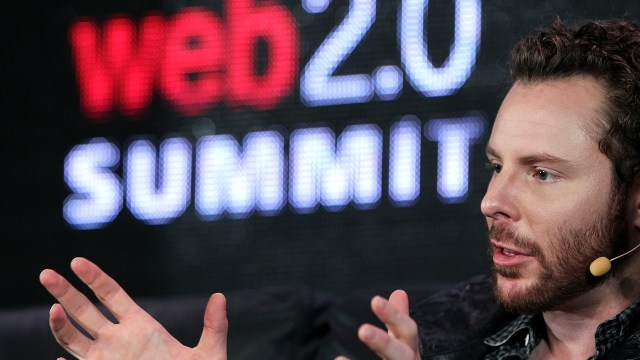Neil deGrasse Tyson and Brian Greene: Is Reality a Computer Simulation?

Are we living in a simulation? This idea was hypothesized by Philosopher Nick Bostrom in a paper in 2003 simply titled, Are you living in a computer simulation?
This hypothesis provides an interesting thought experiment, which asks us to question the very nature of our reality. But how might we deduce whether or not we’re living in such a world?
If you ever wanted a guide through this unnerving line of questioning, take a listen to this episode of StarTalk where Neil deGrasse Tyson and theoretical physicist Brian Greene sit down to about how physics might play a role in this hypothesis and how we might observe this possible reality.
Bostrom’s hypothesis:
“One thing that later generations might do with their super-powerful computers is run detailed simulations of their forebears or of people like their forebears. Because their computers would be so powerful, they could run a great many such simulations. Suppose that these simulated people are conscious (as they would be if the simulations were sufficiently fine-grained and if a certain quite widely accepted position in the philosophy of mind is correct). Then it could be the case that the vast majority of minds like ours do not belong to the original race but rather to people simulated by the advanced descendants of an original race. It is then possible to argue that, if this were the case, we would be rational to think that we are likely among the simulated minds rather than among the original biological ones. Therefore, if we don’t think that we are currently living in a computer simulation, we are not entitled to believe that we will have descendants who will run lots of such simulations of their forebears.”
So, are we living in The Matrix? Tyson and Greene say, it’s possible, so what evidence might we have to prove our world lives in a computer?
1. The first suggestion often proposed is inspired by The Matrix: Look for glitches.
“Real universes don’t have glitches, but computers can have them,” Greene explains. “But I say to that… if it’s a really good simulation it should be able to rewind, erase the memory of the glitch, fix it, and then the simulated beings have no memory of it ever happening.”
2. The next issue is our simulation could simulate evidence for us to block our progress towards this realization. Likewise, a simulated universe might be created to be purposefully complex as a way to hinder us from progress.
3. The last piece of evidence the show puts forth is the observation of mass power shortages could be an indication of a simulation. Why?
If we are simulation then eventually the technology might progress to a point where we decide to build a simulation. This idea gives rise to the idea of the multiverse. Simulations would begin to eat up a lot of computing power, which might cause power shortages in the original universe.
In addition to this issue, Gödel’s incompleteness theorem would argue that these simulations would gradually become less complex. The reason being a simulation cannot exceed the level of complexity that its universe can support.
Greene argues that the idea of living in a simulation is not just the result of a physicist’s overactive imagination—the math is there.
“We used to consider the Big Bang a singular event that gave rise to one universe, but the math shows you don’t use up all that fuel in a single big bang. In fact, the bang itself winds up generating more of the fuel which generates other bangs—other universes.”
But questioning the nature of our reality would complicate one huge concept many people consider truth, which is the existence of a God. Indeed, what does a simulated universe say about the concept of a creator?
Greene and Tyson joked in the episode that our creator in a simulated world could be a 15 year old kid in his garage. It could explain why our world comes so close to how a kid plays The Sims. It might not be a comfort to anyone considering the simulation hypothesis to realize everything good or bad that has ever happened in your life is the result of a child’s whim.
—





